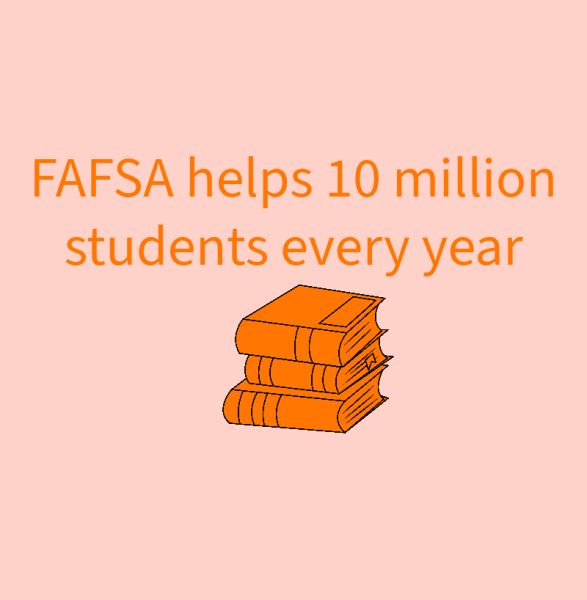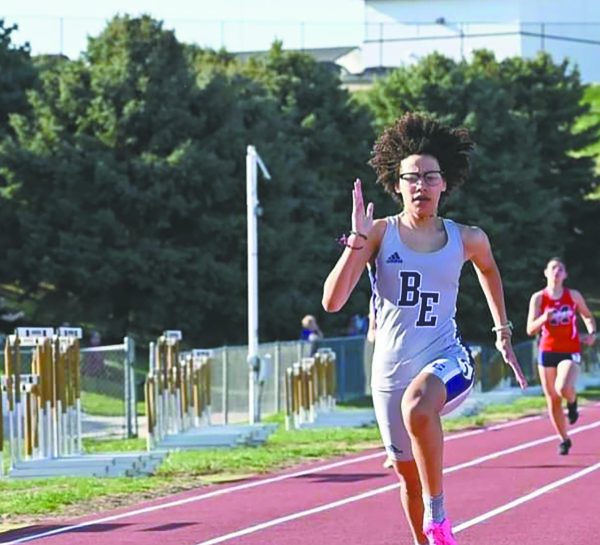Teens and drugs are not a good mix By Naylah Neal
March 3, 2021
Imagine this: One moment you are experiencing euphoria and feeling substantial. Next thing you know you’re hungry, confused, and anxious. You have no recollection of walking to your fridge, in fact, you don’t remember making it down the stairs. You look around and what do you see? There, in front of you, taking up the entire kitchen is a tremendous, horrific dragon that you are merely hallucinating. These are some effects of Marijuana.
There are many other drugs that can take effect on your body much worse than this. Some drugs can even cause permanent damage. “Physiologically your brains are not fully developed in your teenage years and for guys it actually goes into their mid-twenties and therefore, it’s easier to get addicted, it’s easier to have a harsher impact and cause more problems in learning, in emotional control. So all drugs have a more serious impact on teens and the younger you are, so if you’re 19 as opposed to 12 it’s a range, so I’m obviously going to be opposed to any of that.” said, Mary Trowbridge, a dean at Bellevue East High School.
Not all drug use is abuse and addiction (or dependence), but there’s a fine line. Drug abuse references a person that persists to utilize drugs even though they know it is having an inauspicious affect on their health and well being. Drug abusers will continue to use even though their social life is going to pieces and their financial stability is disintegrating. Drug dependence occurs when an individual has reinforced a forbearance to a particular drug or drugs. With tolerance comes the need to consume increasing amounts of the drug in order to attain a “high”. Those with a drug dependence problem are also likely to experience withdrawal symptoms when they stop taking the drug in question. It doesn’t matter who you are, anybody can have either of these issues. “…it’s not really based on any one socioeconomic or what kind of a student. We have students whose parents have plenty of money, we have students whose parents don’t have any money, we’ve seen students who are pretty bright, students who don’t do well in school; it really crosses all boundaries, it’s one of those things that teenagers kind of view the world differently than we do as adults and they just say, ‘Y’know I wanna try that’ ‘I wanna see what it’s like’ ‘It won’t hurt me’ so really it can be any kind of student.”
I don’t recommend using drugs at all, but especially as a teen. “Teens who abuse drugs may have a greater risk of developing an addiction when they are adults. It’s important to know the difference between drug abuse and addiction. Many teens experiment with drugs, but aren’t addicted. Teen drug abuse can have long-term cognitive and behavioral effects since the teenage brain is still developing. Recognition and prevention of drug use can end an emerging problem before it starts.” “When drugs enter the brain, they interfere with its normal tasks and can eventually lead to changes in how well it works. Over time, drug use can lead to addiction, a devastating brain disease—when people can’t stop using drugs even when they really want to, and even after it causes terrible consequences to their health and other parts of their lives.”
Alcohol is also considered to be drugs in terms of addictions. If you suspect your teen is using, first make sure it’s not just your teen experimenting. Experimentation plays the biggest role in teenage drug use. However, experimentation is a fact of life and just because a teen has tried drugs or alcohol doesn’t mean they will become an addict. “The majority of adults with an addiction first experimented with drugs before they turned 21. The good news is that the rates of teenage drug abuse have been declining. Some common signs of teen drug abuse include: Bad grades, bloodshot eyes, laughing for no reason, loss of interest in activities, poor hygiene, diminished personal appearance, avoiding eye contact, frequent hunger or “munchies”, smell of smoke on breath or clothes, secretive behavior, unusual tiredness, missing curfew “
“The best way to get a teen to communicate about their drug use is by asking compassionate and understanding questions.” Parents can ask straightforward questions when said in the right tone. Simply asking, “Have you been using drugs or alcohol?” or “Has anyone offered you drugs recently?” can be enough to get the conversation started.
Responding to a teen’s admittance or denial of drug use in the right away is just as important as asking the right questions.
“The best way to get a teen to communicate about their drug use is by asking compassionate and understanding questions.” Parents can ask straightforward questions when said in the right tone. Simply asking, “Have you been using drugs or alcohol?” or “Has anyone offered you drugs recently?” can be enough to get the conversation started. Responding to a teen’s admittance or denial of drug use in the right away is just as important as asking the right questions.
If you are a teen or know a teen using, abusing, or any other form, seek help immediately. Call 1-855-378-4373 or Text 55753. “I think the first step would be therapy, discover the underlying cause for their drug use and how to help. Desire to help themselves.” said, former medical student, Amber Mullin.







